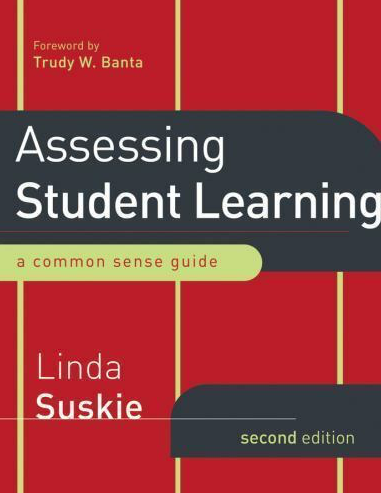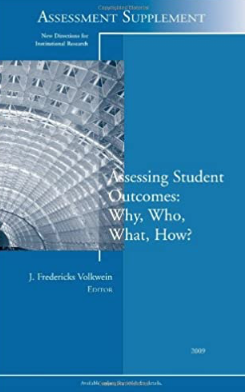-
Reflection on the Class
-
Class Syllabus
-
Activities
-
Textbook
<
>
Reflection of Class:
The work of institutional researchers are extremely important in the field of Higher Education. Volkwein, a student affairs researcher, points out that assessment allows for external accountability and internal self-review. Today’s landscape is ever changing and more and more constituents want a say in how education works. With that landscape, offering assessment ensures to constituents (law makers, parents, students, etc) that the institution is doing its job educating students and providing adequate services (in essence, the money that students are paying or that the government is dishing out to each institution is worth it). However, in order to provide that evidence, close examinations of university polices, practices and programs are necessary, allowing for the institution to look at strengths and weaknesses, build upon the strengths and adjust to fix the weaknesses in their program.
As more and more institutions started to form, it was necessary to create a “standard” to judge which institutions were legitimate and deserved the millions of dollars in federal funding as well as student enrollment verses those institutions which were just diploma mills not deserving federal funding and student enrollment. With that, accreditation processes were created to offer an avenue for students to understand what an institution is like as well as channel federal funding to those institutions that meet specific criteria for accreditation.
The class lays down the foundation for the importance of institutional research and assessment and then gives students the opportunity to use NSSE data to examine how real world assessment data can be used to benefit the institution when it comes to decision making, strategic planning, budgetary expenses and student development. Using information from the NSSE survey, researchers can make predictions on retention numbers (persistence), graduation rates, and overall student success. This class fostered a strong sense for the benefits of researchers and staying committed to utilizing institutional research and assessment to constantly improve programs and the importance of spending money on research and building collaborations with institutional researchers to constantly better the program to meet students needs.
The work of institutional researchers are extremely important in the field of Higher Education. Volkwein, a student affairs researcher, points out that assessment allows for external accountability and internal self-review. Today’s landscape is ever changing and more and more constituents want a say in how education works. With that landscape, offering assessment ensures to constituents (law makers, parents, students, etc) that the institution is doing its job educating students and providing adequate services (in essence, the money that students are paying or that the government is dishing out to each institution is worth it). However, in order to provide that evidence, close examinations of university polices, practices and programs are necessary, allowing for the institution to look at strengths and weaknesses, build upon the strengths and adjust to fix the weaknesses in their program.
As more and more institutions started to form, it was necessary to create a “standard” to judge which institutions were legitimate and deserved the millions of dollars in federal funding as well as student enrollment verses those institutions which were just diploma mills not deserving federal funding and student enrollment. With that, accreditation processes were created to offer an avenue for students to understand what an institution is like as well as channel federal funding to those institutions that meet specific criteria for accreditation.
The class lays down the foundation for the importance of institutional research and assessment and then gives students the opportunity to use NSSE data to examine how real world assessment data can be used to benefit the institution when it comes to decision making, strategic planning, budgetary expenses and student development. Using information from the NSSE survey, researchers can make predictions on retention numbers (persistence), graduation rates, and overall student success. This class fostered a strong sense for the benefits of researchers and staying committed to utilizing institutional research and assessment to constantly improve programs and the importance of spending money on research and building collaborations with institutional researchers to constantly better the program to meet students needs.

